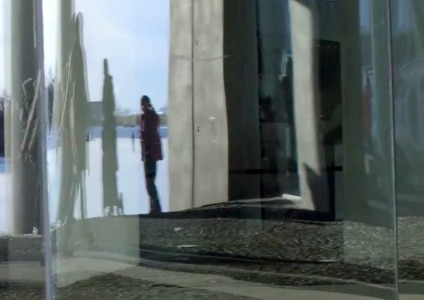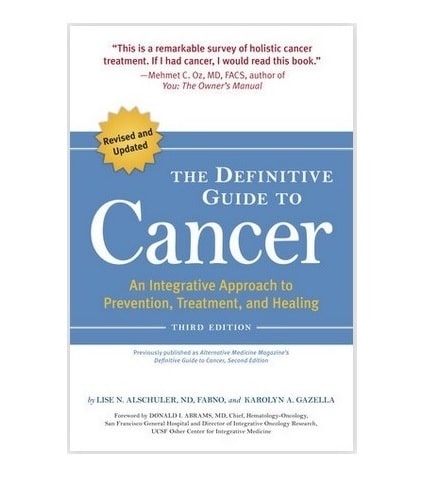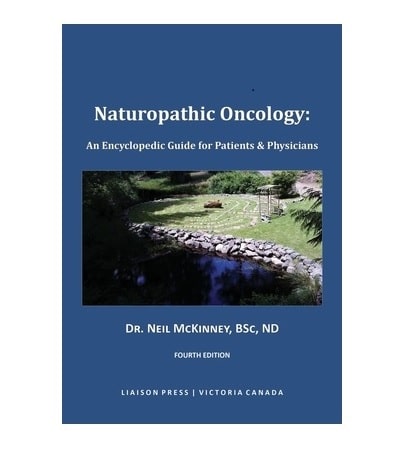Reishi mushroom is a natural product that may enhance immunity and response to chemo/radiotherapy, improve quality of life, and manage some side effects.
How do experts use reishi mushroom?
Both medical groups and integrative experts provide recommendations for reishi mushroom in treating people with cancer. Learn more about the approaches and meanings of recommendations: Integrative Oncology Programs and Expert Guidelines ›
Published protocols, programs, and approaches
Reishi mushroom is used in programs, approaches and protocolsa package of therapies combining and preferably integrating various therapies and practices into a cohesive design for care from these integrative oncologists, drawing from both scientific research and observations from years or even decades of treating patients:
Lise Alschuler, ND, FABNO, and Karolyn Gazella
Alschuler LN, Gazella KA. The Definitive Guide to Cancer, 3rd Edition: An Integrative Approach to Prevention, Treatment, and Healing. Berkeley, California: Celestial Arts. 2010.
Alschuler LN, Gazella KA. The Definitive Guide to Thriving after Cancer: A Five-Step Integrative Plan to Reduce the Risk of Recurrence and Build Lifelong Health. Berkeley, California: Ten Speed Press. 2013.
Approaches are described for certain cancer types, or along with certain conventional therapy treatments, or for particular conditions such as insulin resistance.
Uses of reishi mushroom:
- Colorectal cancer
- Hormonal balance
- Enhancing immune system function
- Mushroom extracts during radiation therapy to support immunity and reduce fatigue
Keith Block, MD
Block KI. Life over Cancer: The Block Center Program for Integrative Cancer Care. New York: Bantam Dell. 2009.
The integrative Block Program has recommendations to people who are at different places along the cancer continuum:
- Those who’ve been recently diagnosed
- Those in treatment
- Those who’ve concluded treatment and need to remain vigilant to prevent recurrence
Uses of reishi:
- Core diet plan and in extracts
- Priming the immune system before surgery
- Enhancing immune cell cytotoxicity
- Targeting cancer progression pathways
- Immune surveillance
- Enhancing effectiveness of chemotherapy
Gerald Lemole, MD; Pallav Mehta, MD; and Dwight McKee, MD
Lemole GM, Mehta PK, McKee DL. After Cancer Care: The Definitive Self-Care Guide to Getting and Staying Well for Patients with Cancer. New York, New York: Rodale, Inc. 2015.
These doctors present easy-to-incorporate lifestyle changes to help you “turn on” hundreds of genes that fight cancer, and “turn off” the ones that encourage cancer, while recommending lifestyle approaches to address each type.
Reishi is a part of a whole-foods diet in this book.
Neil McKinney, BSc, ND
McKinney N. Naturopathic Oncology, Fourth Edition. Victoria, BC, Canada: Liaison Press. 2020.
This book includes descriptions and uses of many natural and complementary protocols for cancer in general and for specific cancers. It also includes information on integrative support during conventional cancer treatment.
Uses of reishi mushroom:
- Chemotherapy support
- Protecting from radiation from imaging tests
- Radiation therapy fatigue
- Chemotherapy fatigue
- Integrative support plan for chemotherapy
- Inhibiting NF kappa
- Preventing tumor resistance with gemcitabine and capecitabine
- Weight loss and metabolic cachexiaweakness and wasting of the body due to severe chronic illness protocol
- Natural targeted agent
- Immune modulation
- General leading remedy for integrative cancer care to balance immunity and promote healing
- Bladder cancer
- Brain cancer
- Breast cancer
- Cervical cancer
- Colorectal cancer
- Esophageal cancer
- Gallbladder cancer
- Head and neck cancer
- Lung cancer
- Myeloma
- Pancreatic cancer
- Prostate cancer
- Sarcoma
- Skin cancer (non-melanoma)
- Uterine cancer
Other expert assessments
Chinese medicine clinical service
Reishi was evaluated by a Chinese medicine clinical service but no consensus was reached regarding use, although the quality of evidence was judged as “high.” Some reviewers expressed concerns regarding its negative impact on blood cell count as well as possible negative herb-drug interactions between reishi and chemotherapeutic agents.
See further opinion on use with chemotherapy in the Commentary section below.
Traditional medicine
Reishi is used in traditional Chinese medicine to support immune function in people with cancer undergoing chemotherapy and radiotherapy. It has been used for over 2000 years in East Asia as a tonic for prolonging life, preventing aging, and boosting qi (life force or energy).1National Cancer Institute. Medicinal Mushrooms PDQ: Health Professional Version. October 5, 2020. Viewed February 10, 2021.
Learn more about traditional Chinese medicine and how to find practitioners: Traditional Chinese Medicine and Professionals in Cancer Care ›
Dosing
Dosage has not been standardized for use in cancer care, but recommendations are available from these sources.
General information about dosing
Find general dosing guidelines regarding natural products and supplements in Dosing Guidelines ›
Preparation
In traditional Chinese medicine and in many of the studies of medicinal mushrooms, hot water extracts have been used. The cell wall of the mushroom is indigestible by humans—hence, eating raw mushrooms for culinary or medicinal reasons is not recommended. Ground mushroom eaten as a powder is irritating to the liver, yet when that ground mushroom is decocted in hot water, the medicinal ingredients become available and it is safer to consume. As a result, several integrative oncology clinicians report that they prescribe hot water extracts of medicinal mushrooms.2McKinney N. Naturopathic Oncology, 3rd Edition. Victoria, BC, Canada: Liaison Press. 2016.
Expert commentary
Erlene Chiang, DAOM, LAc, February 17, 2021: Reishi is high in antioxidants, which is why it works so well in preventing cancer. However, if consumed in large quantities on a daily basis, it may interfere with chemotherapy or radiation treatment. Many oncologists are reluctant to have patients take high-antioxidant mushrooms or herbs during chemo and radiation, but many of my patients are still using reishi mushrooms because they feel they need the support during chemotherapy. The compromise is to use reishi five days after completion of a round of chemotherapy, in between chemo sessions, or on the “off” days during radiation. It can be taken up to the day a chemo session is started (and will not interfere with pre-chemo blood work). However, patients taking oral chemotherapy on a daily basis should not take reishi. The exception to this is if the oral chemo regimen has one-week-off periods, in which case it can be taken during that off week. Another exception is if the patient is doing palliative chemotherapy such as maintenance care chemotherapy. In that case it is generally OK to take reishi. Patients involved in a clinical trial [for other treatments] should not use reishi or other antioxidants or supplements that may interfere with the measurements from the trial.
Helpful links

Oriveda
References


